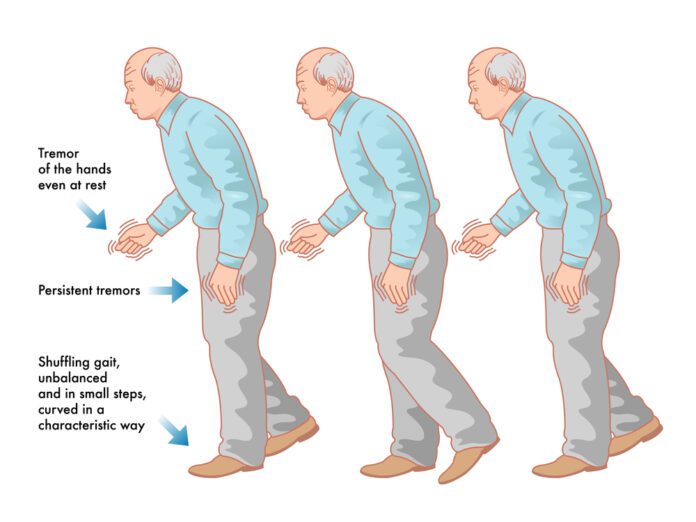Overview Of Tremor – Drug-Induced
Drug-induced tremor is involuntary shaking due to the use of medicines. Involuntary means you shake without trying to do so and can’t stop when you try. The shaking occurs when you move or try to hold your arms, hands, or head in a certain position. It is not associated with other symptoms.
Commonly Associated With
Tremor – drug-induced; Shaking – drug tremor
Causes Of Tremor – Drug-Induced
Drug-induced tremor is a simple nervous system and muscle response to certain medicines.
Drugs that can cause tremor, include the following:
- Cancer medicines such as thalidomide and cytarabine
- Seizure medicines such as valproic acid (Depakote) and sodium valproate (Depakene)
- Asthma medicines such as theophylline and albuterol
- Immune suppressing medicines such as cyclosporine and tacrolimus
- Mood stabilizers such as lithium carbonate
- Stimulants such as caffeine and amphetamines
- Antidepressant drugs such as selective serotonin reuptake inhibitors (SSRIs) and tricyclics
- Heart medicines such as amiodarone, procainamide, and others
- Certain antibiotics
- Certain antivirals, such as acyclovir and vidarabine
- Alcohol
- Nicotine
- Certain high blood pressure drugs
- Epinephrine and norepinephrine
- Weight loss medicine (tiratricol)
- Too much thyroid medicine (levothyroxine)
- Tetrabenazine, a medicine to treat excessive movement disorder
Symptoms Of Tremor – Drug-Induced
The tremor may affect the hands, arms, head, or eyelids. In rare cases, the lower body is affected. The tremor may not affect both sides of the body equally.
The shaking is usually fast, about 4 to 12 movements per second.
The tremor may be:
- Episodic (occurring in bursts, sometimes about an hour after taking the medicine)
- Intermittent (comes and goes with activity, but not always)
- Sporadic (happens on occasion)
The tremor can:
- Occur either with movement or at rest
- Disappear during sleep
- Get worse with voluntary movement and emotional stress
Other symptoms of drug-induced tremor may include:
- Head nodding
- Shaking or quivering sound to the voice
Exams & Tests
Your health care provider can make the diagnosis by performing a physical exam and asking about your medical and personal history. You will also be asked about the medicines you take.
Tests may be done to rule out other reasons for the tremor. A tremor that occurs when the muscles are relaxed or that affects the legs or coordination may be a sign of another condition, such as Parkinson’s disease. The speed of the tremor can be an important way to determine its cause.
Other causes of tremors may include:
- Alcohol withdrawal
- Cigarette smoking
- Overactive thyroid (hyperthyroidism)
- Parkinson disease
- Adrenal gland tumor (pheochromocytoma)
- Too much caffeine
- Disorder in which there is too much copper in the body (Wilson disease)
- Blood tests and imaging studies (such as a CT scan of the head, brain MRI, and x-rays) are usually normal.
Treatment Of Tremor – Drug-Induced
Drug-induced tremor often goes away when you stop taking the medicine that is causing the shaking.
You may not need treatment or changes in the medicine if the tremor is mild and does not interfere with your daily activity.
If the benefit of the medicine is greater than the problems caused by the tremor, your provider may have you try different dosages of the medicine. Or, you may be prescribed another medicine to treat your condition. In rare cases, a drug such as propranolol may be added to help control the tremor.
Do not stop taking any medicine without first talking to your provider.



